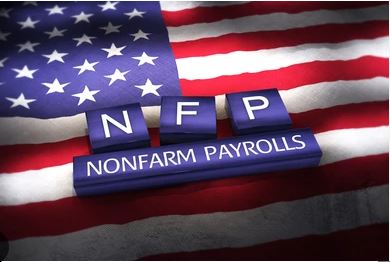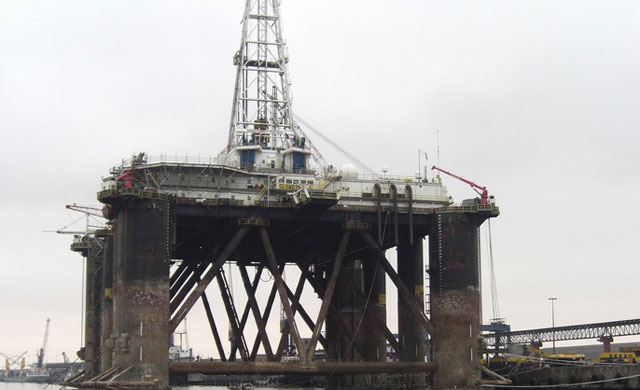I think we are all trying to figure out what happened last week. Even Brexit voters seem surprised by their victory, and even more surprised by the market reaction – “why didn’t anybody tell them there would be severe business consequences from exiting?”

What I’m about to write is speculative; it also a partial explanation – there were many other factors most notably “freedom to govern ourselves” and xenophobia. I’m thinking this through on the hoof, so please add your thoughts to help firm-up our logic.
Living in fraught times
In 2016 we have the rise of anti-elite or anti-establishment sentiment in a range of countries, including the USA, France and Eastern Europe, which might well lead to consequences even more momentous than Brexit. This sentiment has been latched onto by tabloid press and populist opportunistic politicians (most of which seem economically illiterate).
To understand the Brexit vote perhaps we need to step back and consider if this particular act of protest might be part of a larger picture – is it just one of the symptoms of an underlying phenomenon?
The start of the revolt?
Back in 2011 after a morning of teaching investment approaches to the people at Schroders I would go walking at lunch time. In front of St Pauls there was a 150-tent camp – “Occupy London”. It was focused on anti-austerity, anti-capitalism and anti-globalisation. I read their posters and heard their arguments.
Their Statement included the following elements:
“The current system is unsustainable. It is undemocratic and unjust. ………We refuse to pay for the banks’ crisis……We do not accept the cuts as either necessary or inevitable……
…… We demand an end to global tax injustice and our democracy representing corporations instead of the people……..We want regulators to be genuinely independent of the industries they regulate……
We support …… actions to defend our health services, welfare, education and employment, ……..
…….We want structural change towards authentic global equality. The world’s resources must go towards caring for people and the planet, not the military, corporate profits or the rich…….
…………The present economic system pollutes land, sea and air, is causing massive loss of natural species and environments, and is accelerating humanity towards irreversible climate change. We call for a positive, sustainable economic system that benefits present and future generations.”
You might say this is standard stuff for the left, for hippies. However, I, along with a number of hard-nosed Tory Lords (e.g. Lord Myners), thought they had a point – and, more importantly, they would eventually have an effect.
After lunch I went back to Schroders to teach, but before I started the proper session I said to the group that I sensed that around the world something is changing; that there had been a shift of mood. The people were fed up with the way things were run by the current elite.
One of the attendees pooh-poohed the idea. He thought the protests are just the normal crying out of the unsuccessful, and that things will go on as before. He happened to be from a privilaged, patrician and connected background (Eton, family in senior positions in the Royal household and senior secret service positions).
I listened to him, but was still troubled by the thought that there would be a swing away from the current establishment. I thought that something had broken. I thought we needed to pay attention – and have policy changes.
Adding another dot…..to join up
Combine the above idea with this one: Over the last thirty years we have been in thrall to the idea of the reign of internationalisation of markets: Comparative and absolute advantage, free trade, specialisation, corporatisation and the pushing down of costs as we send goods around the world.
Economists will tell you that this has brought great benefits. And, indeed, GDP numbers show that GDP per capita has risen in just about every country. In some it has quadrupled (e.g China). Even in the UK and USA, according to the aggregate GDP numbers we have a doubling in real annual income since 1980.
All true. But who has benefitted? Statistics for typical middle-class Americans show that their income has been stagnant for a quarter of a century. That’s right – tens of millions of Americans have not seen any income growth. In some towns the big factory has been closed due Chinese competition. These Americans are angry. So, national GDP doubled but whole swathes of society are left behind.
That extra income must have gone somewhere. It has – it’s concentrated in the hands of those who benefit greatly from higher education and internationalisation, e.g. Silicon Valley, the top 1%, and old-moneyed families. Trickle-down economics does not seem to be working.
Similar, if less extreme, observations can be made about UK Northern and Midlands towns, while young highly educated globally-oriented Brits embrace the globalisation.
Another dot
People living in these down-at-heel places read in their morning papers that hundreds of thousands of immigrants are arriving in the country every year and taking jobs, and benefits. They are resentful. Tabloids fan the flames.
Policy response
From the perspective of the non-elite the money that was handed out to bankers post-2008 came from them. The bankers “got off scot-free”.
But the experts said this was the way go. The experts had also said that globalisation, pooling of sovereignty, free trade, deregulation of finance, free movement of people was the way to go.
But look at us in our rust-belt town, how has that benefitted us? Million-pound salaries for idiot bankers – and no jail – and the establishment……..To read the rest of this article, and more like it, subscribe to my premium newsletter Deep Value Shares – click here http://newsletters.advfn.com/deepvalueshares/subscribe-1

 Hot Features
Hot Features














Don’t see why Brexit leavers should be surprised by the Market reaction.
Project Fear Remain were banging on about it all the time.
The majority did’nt believe them thankfully & we still voted leave.
This is all about the long term & not some short term volatility & reaction.
The FTSE 100 has recovered some ground already & at about 6,000 is still way higher than the 3,500 it sunk to in 2008, and even 5,500 in Feb 2016.
We joined EFTA in the 1960’s, which became the EEC-all about free trade & trade deals. Some 67% of voter approved in the refendum of that time. The Politicians had hidden the fact they wanted more-a legal & political union which they never asked us to approve before going down that route. This is the first time we have been asked for our opinion on the success of that, or not & have voted accordingly–LEAVE. B